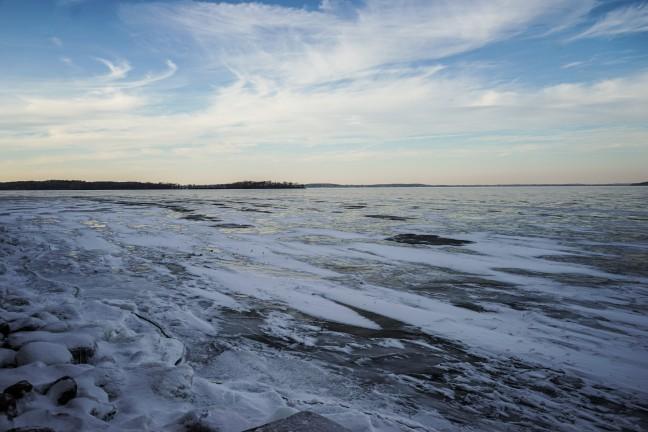The Great Lakes — five lakes spanning 94,000 square miles —are in danger, according to Dan Egan’s book,“The Life and Death of the Great Lakes,” that was chosen as University of Wisconsin’s Go Big Read for 2018-19.
Egan is a senior water policy fellow at UW-Milwaukee School of Freshwater Sciences, a two-time Pulitzer Prize finalist and a reporter for the Milwaukee Journal Sentinel. In his book, he explores the ecological catastrophe that is happening less than 100 miles from the UW campus.
UW Sea Grant Institute encourages lake sustainability across Wisconsin
The book dives into the Great Lakes, which contains 20 percent of the worlds freshwater and provide sustenance, work and recreation. The book also explores how Americans can restore and conserve the lakes for future generations.
Chancellor Rebecca Blank said in a statement that over 80 percent of UW’s fall 2018 incoming freshmen originate from states bordering the Great Lakes.
“It’s written in a way that pulls readers in and serves as a reminder that we can’t take these wonderful resources for granted,” Blank said. “This book should appeal to our students, particularly given the rapid growth in classes that address environmental issues.”
Office of Sustainability to give out $50,000 through Green Fund
Egan, who grew up in Green Bay, Wisconsin and spent many summers along the Door County Peninsula, has won numerous awards for environmental journalism and science reporting.
“The Life and Death of the Great Lakes” was recently named the April pick for the PBS NewsHour-New York Times book club. Forbes also named it one of the ten best environment, climate science and conservation books of 2017.
Wayland Noland Distinguished Chair, Director of the Center for Limnology and Professor of Integrative Biology Jake Vander Zaden said this book is of significant importance to people living in the areas around the Great Lakes.
“It is an environmental book, but at the same time the book has so much history and a really huge social component to it as well,” Vander Zaden said.
Due to its local relevance, Vander Zaden hopes it will have a greater impact on students.
Vander Zaden hopes the book will show the student body more about the water scarcity issues around the world, something he believes will be a growing issue in the future.
“I think most people who have been in [the Great Lakes] region fail to recognize what a valuable resource [the Great Lakes] are,” Vander Zaden said.
_______
Update 11:19 a.m.: This article has been updated to include comments from Professor Jake Vander Zaden.













